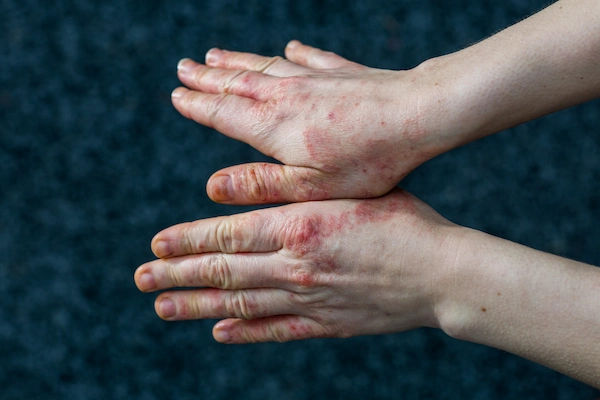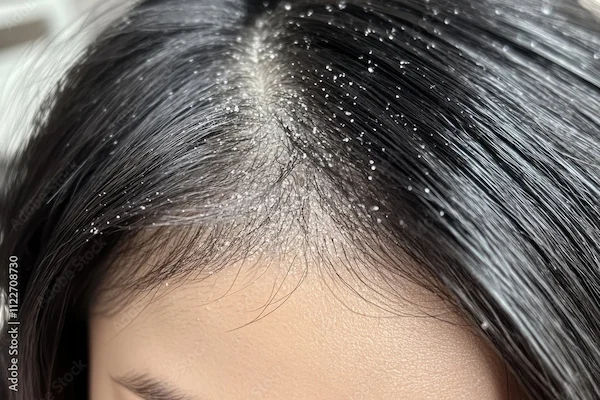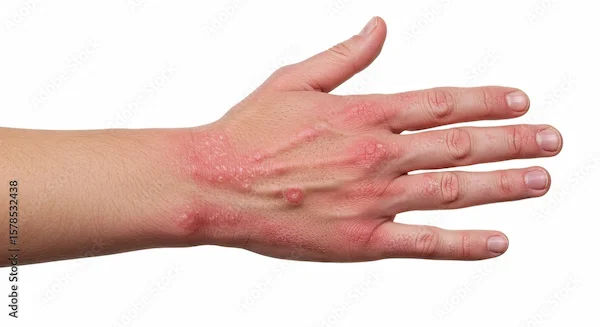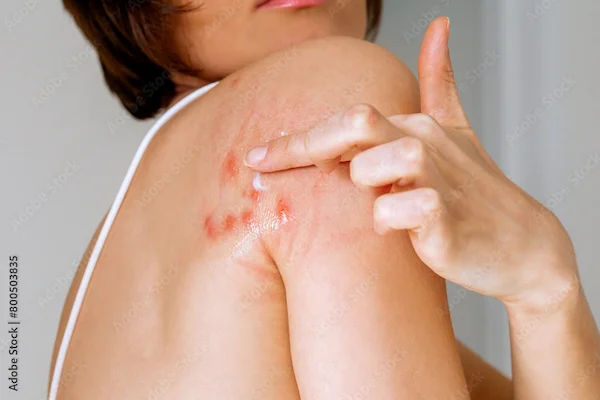- female
- 35 Years
- 22/01/2025
I'm dealing with this macular amyloidosis and it's really getting on my nerves. I've got these pigmentation issues popping up on my upper back, legs, and hands, and now it's spreading to my neck too. The itching is just unbearable in these areas. Im really looking for some guidance on what kind of treatment I should go for. Is there any real cure for this?
Answered by 1 Apollo Doctors
Macular amyloidosis is a chronic skin condition that can be challenging to treat. To help manage the pigmentation and itching, I recommend using a topical corticosteroid cream such as Clobetasol propionate 0.05%. Apply a thin layer to the affected areas twice daily for up to 2 weeks. Additionally, you can take an oral antihistamine like Loratadine 10mg once daily to help with the itching. It is important to keep the skin well moisturized, so I suggest using a gentle moisturizer like Cetaphil. Avoid scratching the affected areas to prevent further irritation. If the symptoms persist or worsen, please follow up with a dermatologist for further evaluation and management.
Dr. Ranjith Suggests...
Consult a Dermatologist
Answered 04/07/2025
0
0

More Dermatology Health Queries
View allI've noticed that the left side of my upper lip has become really dry and chapped, and the skin is even starting to peel off. I've tried using coconut oil, ghee, and Vaseline to help, but it still hurts a little. What could be causing this, and is there anything else I should try?
Continue same treatment.
Answered by 1 Apollo Doctors
I'm really struggling with my skin lately. It's become really dry and itchy, even though I've tried so many different lotions and creams. Do you have any advice on what might help get rid of this issue?
That could be eczema visit Dermatologist for evaluation and appropriate management
Answered by 1 Apollo Doctors
I'm really curious about whether melanin treatment for achieving fairer skin is actually safe. Could you tell me how long the process usually takes and what the cost might be? Also, have you ever carried out skin whitening treatments using melanin? I'm a bit worried and would love to know if I can undergo this treatment and what possible side effects there could be.
These is a vague terminology and makes no sense. Kindly do not fall into the hands of such therapists. I think no Dermatologist will recommend you something like this. Basically there are depigmentation treatment protocols which modify melanocytes functioning in an orchestrated manner that results in a healthier and better skin tone, This could be a chemical peel, rejuvenation skin lasers or mesotherapy and PRP therapy. Meet a qualified dermatologist in person near you to understand these in more details.
Answered by 1 Apollo Doctors
Disclaimer: Answers on Apollo 247 are not intended to replace your doctor advice. Always seek help of a professional doctor in case of an medical emergency or ailment.





